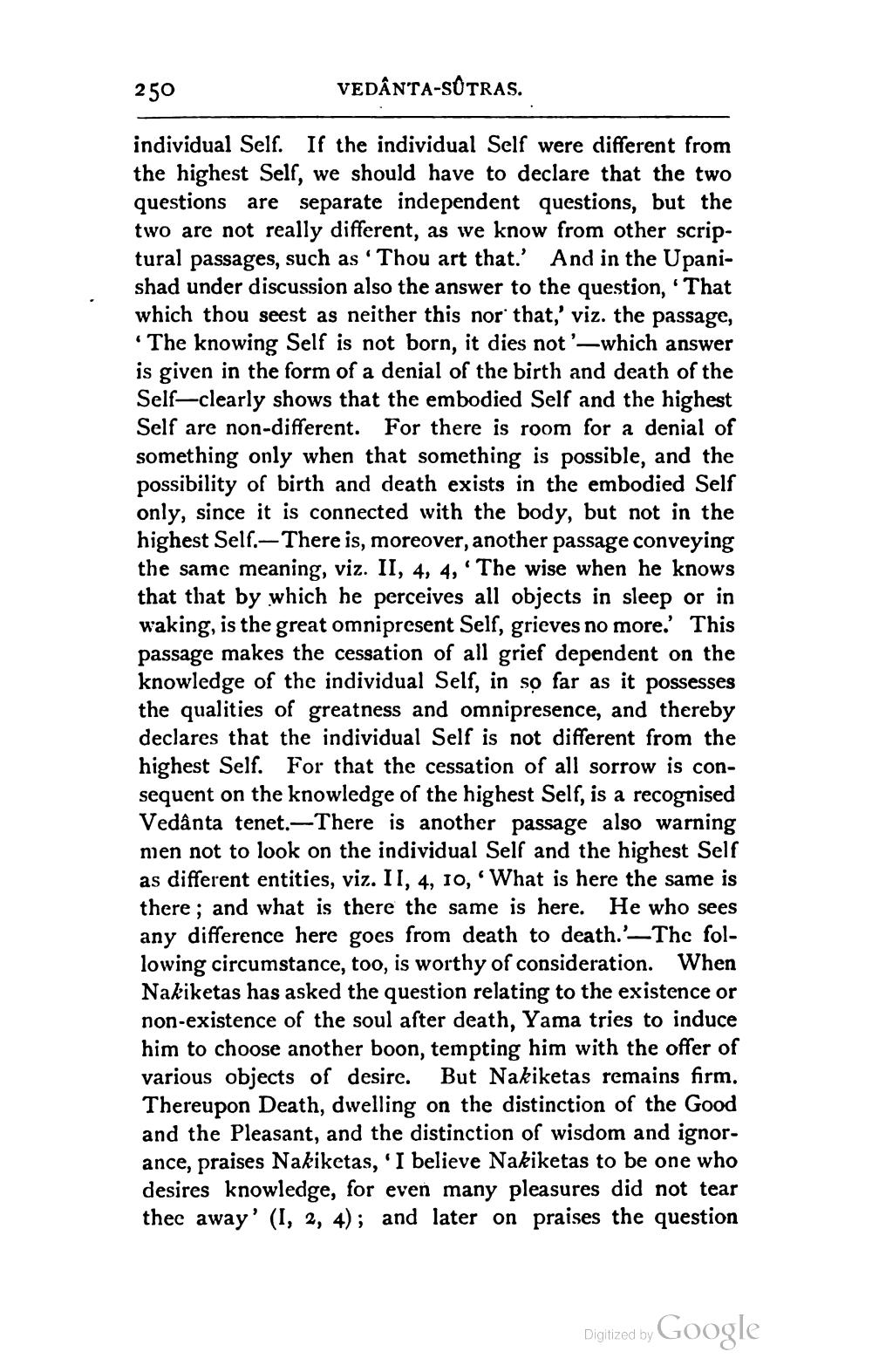________________
250
VEDÂNTA-SÚTRAS.
individual Self. If the individual Self were different from the highest Self, we should have to declare that the two questions are separate independent questions, but the two are not really different, as we know from other scriptural passages, such as 'Thou art that.' And in the Upanishad under discussion also the answer to the question, 'That which thou seest as neither this nor' that,' viz. the passage,
The knowing Self is not born, it dies not'—which answer is given in the form of a denial of the birth and death of the Self-clearly shows that the embodied Self and the highest Self are non-different. For there is room for a denial of something only when that something is possible, and the possibility of birth and death exists in the embodied Self only, since it is connected with the body, but not in the highest Self.— There is, moreover, another passage conveying the same meaning, viz. II, 4, 4, 'The wise when he knows that that by which he perceives all objects in sleep or in waking, is the great omnipresent Self, grieves no more. This passage makes the cessation of all grief dependent on the knowledge of the individual Self, in so far as it possesses the qualities of greatness and omnipresence, and thereby declares that the individual Self is not different from the highest Self. For that the cessation of all sorrow is consequent on the knowledge of the highest Self, is a recognised Vedânta tenet.—There is another passage also warning men not to look on the individual Self and the highest Self as different entities, viz. II, 4, 10, What is here the same is there; and what is there the same is here. He who sees any difference here goes from death to death.'—The following circumstance, too, is worthy of consideration. When Nakiketas has asked the question relating to the existence or non-existence of the soul after death, Yama tries to induce him to choose another boon, tempting him with the offer of various objects of desire. But Nakiketas remains firm. Thereupon Death, dwelling on the distinction of the Good and the Pleasant, and the distinction of wisdom and ignorance, praises Nakiketas, 'I believe Nakiketas to be one who desires knowledge, for even many pleasures did not tear thec away' (I, 2, 4); and later on praises the question
Digitized by
Digized by Google




